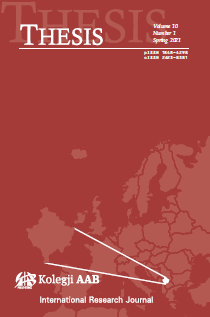The Duplex World: Keizaburo Maruyama’s Elaboration on Saussure’s Principle of the Arbitrariness of Linguistic Sings
The Duplex World: Keizaburo Maruyama’s Elaboration on Saussure’s Principle of the Arbitrariness of Linguistic Sings
Author(s): Naruhiko Mikado, Toshiharu TateyamaSubject(s): Semiotics / Semiology, Epistemology, Semiology, Structuralism and Post-Structuralism, Philosophy of Language
Published by: Botimet AAB – Kolegji AAB
Keywords: Ferdinand de Saussure; Keizaburo Maruyama; Linguistics; Structuralism; Semiology;
Summary/Abstract: This paper has two objectives. It intends, first, to elucidate Ferdinand de Saussure’s discourse on the arbitrariness of linguistic signs and, second, to expound Keizaburo Maruyama’s unique, epistemological thesis developed based on Saussure’s ideas. The argumentation goes as follows. After illustrating that the Swiss linguist’s case, having been understood too diversely, requires an accurate recapitulation and Maruyama’s texts have received little heed, the first section which proves Saussure’s original opinion entails that not only the relationship between a linguistic sign’s signifier and signified but a language’s classification system itself is absolutely contingent. The second section, scrutinizing Maruyama’s theory about our interpreting the world, shows its gist is humans construe the universe through the duplex articulation structure. The third, concluding section describes his view on music as another attribute of his thought, and closes the discussion by indicating that his texts, albeit written decades ago, can help us address today’s conundrums.
Journal: Thesis
- Issue Year: 10/2021
- Issue No: 1
- Page Range: 189-212
- Page Count: 24
- Language: English

